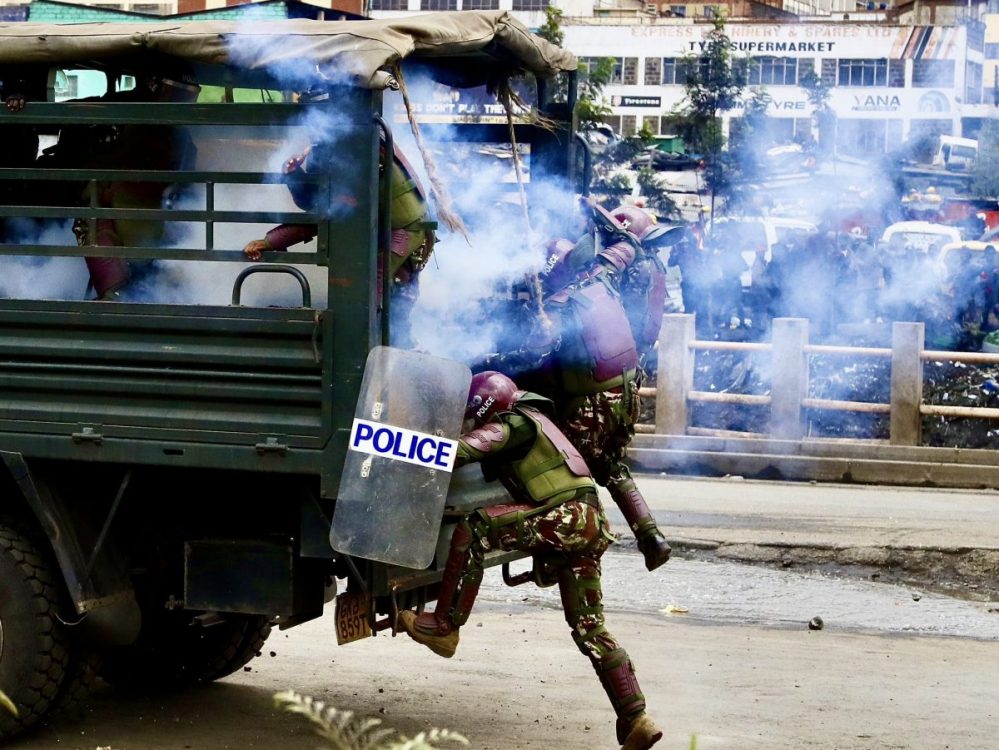Saba Saba exposes harmful threat to democracy
By Alberto.Leny, July 11, 2023Kenya’s credibility among nations professing to uphold democracy has been severely dented following recent events that culminated in last Friday’s Saba Saba mass protests.
Saba Saba translated from Kiswahili means “seven, seven”, the seventh day of the seventh month of the year (July 7). It is a historic day in Kenya.
Before delving into why this day exposes the fragility of democratic governance in Kenya, a reflection of Saba Saba’s background would benefit the younger generation unaware of its significance.
No one captures Saba Saba’s essence in the evolution of democracy in Kenya more than its chief exponent, Opposition leader Raila Odinga, who led last week’s peaceful mass demonstrations police violently broke up with tear gas and gunshots.
As Raila addressed a mammoth rally in the capital Nairobi at the historic Kamukunji Grounds where the Saba Saba slogan was born at the height of the struggle for the “second liberation”, his lieutenants in the Azimio la Umoja coalition led protests in other towns.
This new tact of mass protests with a popular nationwide dimension has been buoyed by overwhelming public outcry against the high cost of living and objections to President William Ruto’s harsh tax measures contained in the Finance Act, 2023 now a subject of critical litigation. In a mighty show of people power bolstered by Article 1 of the Constitution overriding all other arms of government, wananchi have asserted their human and democratic rights as the pillars of all national decisions affecting them.
The constitutional guarantee of public participation and scrutiny of all aspects of democratic governance has ignited a national fervour invested in a dedicated champion, Raila, with an appeal seemingly cutting across the political divide.
That rising wave of mass discontent against authoritarian tendencies and high-handed police interventions should worry those in authority perceived to be clawing back the hard-worn gains of democracy enshrined in the Constitution.
Raila last Friday rekindled memories of the struggle against authoritarianism when he launched mass collection of 10 million signatures in a petition against President Ruto’s government. While the President’s allies may scoff at the move, they should be wary of its implications.
Because apart from the rising mass protests against the high cost of living, taxation and economic justice arouse demands for electoral justice. They evoke memories of the disputed 9 August 2022 election that was only legally settled but has left the country bitterly divided to date.
It is against the spirit of national healing, reconciliation, and growth for leadership to dwell with a sense of self-enlightenment in a mathematical election victory and arrogantly deride the Opposition advocating democratic governance.
The brutal police reaction to the Saba Saba protests is an affront to the Constitution and a threat to democracy.
On July 7, 2015, to mark the occasion of the 25th anniversary of the Saba Saba protests that characterised the protracted struggle for the “second liberation” and multi-party democracy in Kenya in the early 1990s, Raila, one of its foot soldiers, wrote a tribute to the heroes of the struggle.
He described how Kenyans “poured into Nairobi from early hours, defying tight security and dire warnings to demand a piece of the promise our founding fathers made at independence – that justice be our shield and defender, that we may live in unity, peace and liberty, and plenty be found within our borders.” A “third liberation” may be beckoning.
— The writer comments on political and constitutional affairs —albertoleny@gmail.com
More Articles

